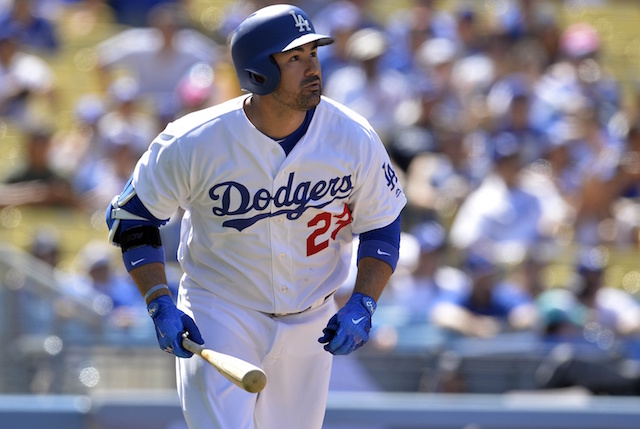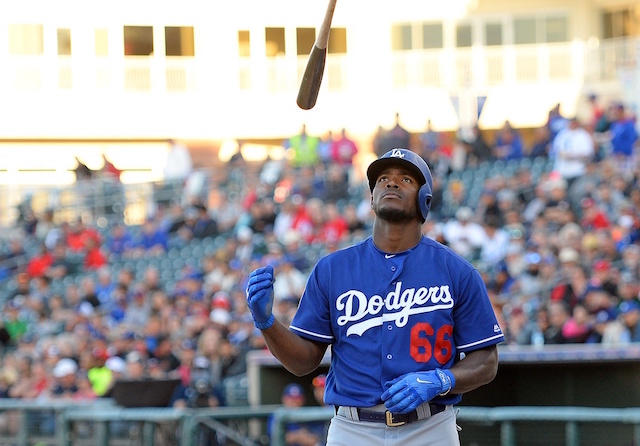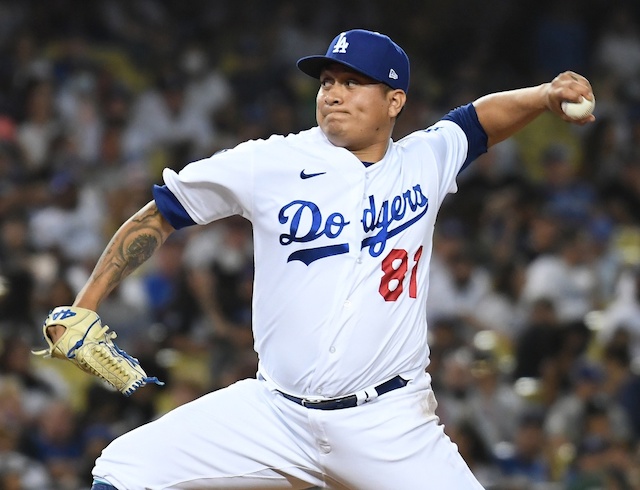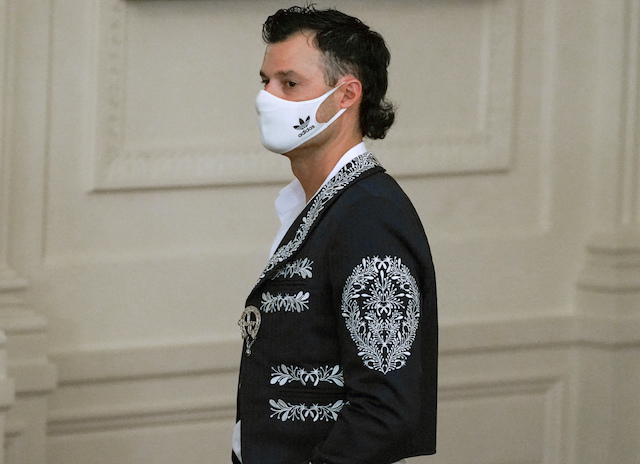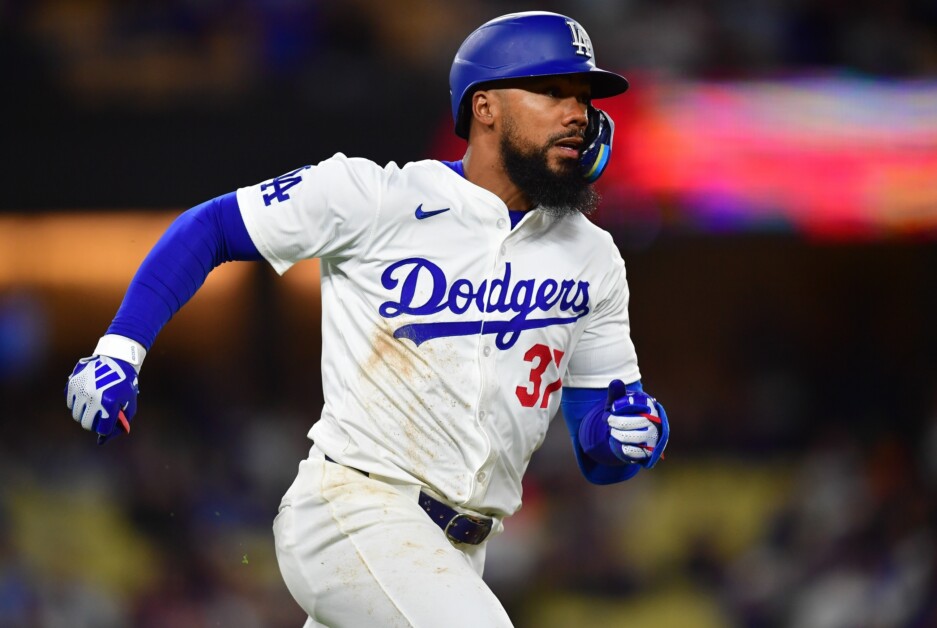With new ownership at the helm in 2012, the Los Angeles Dodgers looked to simultaneously field a competitive product on the field while also rebuilding a depleted farm system. Under the guidance of Guggenheim Baseball Management, the club showed a willingness to spend at all costs in order to accomplish those goals.
That was evident when the Dodgers pulled off a stunning nine-player blockbuster with the Boston Red Sox in August 2012, that saw Adrian Gonzalez, Carl Crawford, Josh Beckett and Nick Punto head to Los Angeles.
In order to consummate the trade, the Dodgers agreed to absorb more than a quarter of a billion dollars in salary, while also sending first baseman James Loney and four prospects to Boston.
The club looked to reenergize a fan base that had lost hope in recent seasons and went all out to acquire a bonafide superstar in Gonzalez, even though it meant taking on massive salaries from additional players to complete the trade.
The move not only flexed the club’s newfound financial muscle, but it sent a message to the rest of the league that a new era for the franchise has unfolded.
It didn’t take long for Dodgers fans to get accustomed to Gonzalez, given his Southern California ties and previous five-year tenure with the in-division San Diego Padres. He immediately made an impact in the middle of the lineup, hitting a three-run home run in is his first at-bat with the club at Dodger Stadium.
After an uncharacteristically dull season with the Red Sox, Gonzalez went on to slash .297/.344/.441 in 36 games with the Dodgers to close out the 2012 season. While the team ultimately failed to reach the playoffs, there was optimism that the following season would see a change of course.
Indeed, that was the case, and Gonzalez played a major role for the Dodgers clinching its first National League West division championship in four years. He hit .293/.342/.461 with 22 home runs and 100 RBI in 157 games, and finished 18th in NL MVP voting for his efforts.
Later that postseason, Gonzalez would bat .333/.333/.500 with one home run and four RBI against the Atlanta Braves in the NL Division Series. He followed up that performance with a .300/.391/.700 showing against the St. Louis Cardinals, accumulating two doubles and two home runs over 23 plate appearances and six games.
The end result wasn’t favorable for the Dodgers, but the club retooled in the offseason and held similar expectations for the 2014 season. Gonzalez once again served as the bread and butter of the Dodgers offense, posting an .817 on-base plus slugging percentage, with a Major League-best 116 RBI over 159 games during the regular season.
Gonzalez not only placed seventh in MVP voting but also took home Gold Glove and Silver Slugger Awards. This time, however, he struggled to the tune of a .188/.235/.375 slash line in a rematch with the Cardinals in the NLDS.
The then-33-year-old would bounce back the following year and enjoyed his best campaign in a Dodgers uniform. In 156 games, he put up an .830 OPS and posted typical power numbers that were expected of him: 33 doubles, 28 home runs and 90 RBI.
He was rewarded with his first and only All-Star appearance as a Dodger (fifth overall) and once again finished in the top-20 in MVP voting. Gonzalez went on to torch the New York Mets’ pitching staff during the 2015 NLDS, slashing .316/.381/.526 with a double and home run.
The Dodgers, though, would suffer yet another disappointing postseason exit, falling in five games at home. Gonzalez once again provided stability for the Dodgers in 2016, appearing in 156 games at the position for the second consecutive season.
Gonzalez’s offensive production began to dip, however, as he posted a .784 OPS with just 18 home runs on the year — both numbers serving as career-lows since becoming an everyday player in 2006.
His struggles carried over to the postseason, where he recorded just two extra-base hits over 41 at-bats in a pair of series against the Washington Nationals and Chicago Cubs.
The 2017 season marked the end of an era for Gonzalez, as he was placed on the disabled list for the first time in his career. That and the emergence of top prospect Cody Bellinger essentially supplanted the veteran of a consistent role with the club, and consequently, he was left off all three postseason rosters.
He wound up appearing in 71 games during the regular season and posted a negative WAR for the first time since 2005.
Last Saturday, Gonzalez’s Dodgers tenure came to a close when he waived his no-trade clause to join the Atlanta Braves, along with utility man Charlie Culberson and pitchers Scott Kazmir and Brandon McCarthy, in a deal that sent back Matt Kemp to Los Angeles.
Gonzalez is expected to become a free agent in the upcoming week after the Braves formally designate him for assignment, allowing the 35-year-old to choose his next destination.
In six seasons with Los Angeles, Gonzalez accumulated 13.3 WAR, per Baseball-Reference’s calculations, and additionally tallied 164 doubles, 101 home runs and 448 RBI over 2,986 plate appearances and 735 games for the club.
Looking back at Gonzalez’s time with the Dodgers, he not only enjoyed multiple above-average seasons on both sides of the ball but was also symbolic for the club’s return to prominence following the sale of the organization five years ago.
His time in Los Angeles was far from perfect, but Gonzalez has firmly established himself as one of the better first basemen to ever don a Dodgers uniform.



